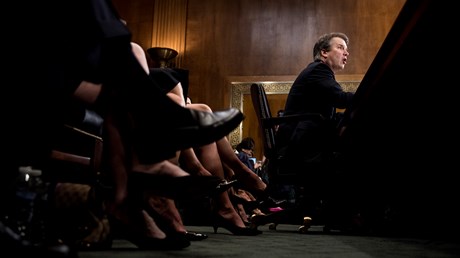Our political loyalties often prevent us from thinking biblically about the human condition.

I’ve read the words “credibility” and “character” more in the past two weeks than in the last two years. The underlying question—whom can we trust?—sits at the heart of our (un)civil discourse and seems to be the salient concern behind the Kavanaugh-Ford conversation. Both my newsfeed and personal inbox have been flooded with heartbreaking stories from people who’ve experienced assault (and therefore believe Christine Blasey Ford), as well as testimonies from those who personally worked with Judge Brett Kavanaugh (and therefore believe him). The court of public opinion has issued similar verdicts. The words “liar,” “saint,” and “smear campaign” are leveled with conviction and indignation against both. People may be sharply divided in their conclusions, but they seem to agree on one thing: There’s a guilty party and an innocent one, and it’s obvious which one is which.
As Christians, we affirm that character matters, and the way we handle accusations matters, too. But our attempts to find people above approach don’t negate the fact that we are, as theologian Francis Schaeffer put it, “glorious ruins.” Humans are capable of both egregious sin and tremendous good, and when our political discourse leads us to vilify or canonize people, we’ve overlooked or overemphasized either one or the other—sin or goodness. If we find ourselves continually drawing fixed conclusions along partisan lines, it suggests that our red-tinted or blue-tinted spectacles are preventing us from thinking deeply and biblically about the human condition.
The Kavanaugh-Ford conversation strikes at the center of my work in the areas ...
from
http://feeds.christianitytoday.com/~r/christianitytoday/ctmag/~3/9AAgKzrmIBU/judge-kavanaugh-supreme-court-saga-says-about-view-of-sin.html
No comments:
Post a Comment